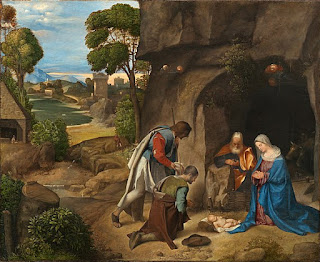Beyond the Virgin Birth of Jesus
On the 25th of December, most professing Christians celebrate how God the Son took the form of the man, Jesus. Around this time, phrases in the Apostles Creed and the Nicene Creed may come to mind about Jesus being born of Mary, a virgin.
No, scoffers, that was not parthenogenesis, but a full-on miracle. Those people deny miracles because they presuppose materialism, which forces a rejection of miracles, and also forces circular reasoning.
The Virgin Birth has been affirmed by Christian denominations for a mighty long time. It was prophesied in the Old Testament and affirmed in the New Testament.
If you study on it, you might notice that virgin birth is not exactly right. The entire birthing process was the same as for any other woman. (Also, I disagree with lyricist William J. Kirkpatrick where lowing cattle wake up baby Jesus and "no crying he makes." He probably did show all present that his lungs worked.) People are satisfied with saying virgin birth and there's no reason to try to correct them, but what really happened is the virgin conception. That may seem like playing with words, but it's important.
 |
| Adoration of the Shepherds, Giorgione, ca. 1505 |
What follows is a detailed article that covers definitions, the theological importance from both Testaments, and why the biblical records are reliable. In addition, alleged contradictions are handily refuted and some questions are answered. Foolishness from compromising "Christians" is shown to be false. Associations with pagan religions are also discussed and eliminated.
To read this article, plan on spending about half an hour. It's great for people interested in history and theology. You can find it at "The Virginal Conception of Christ."